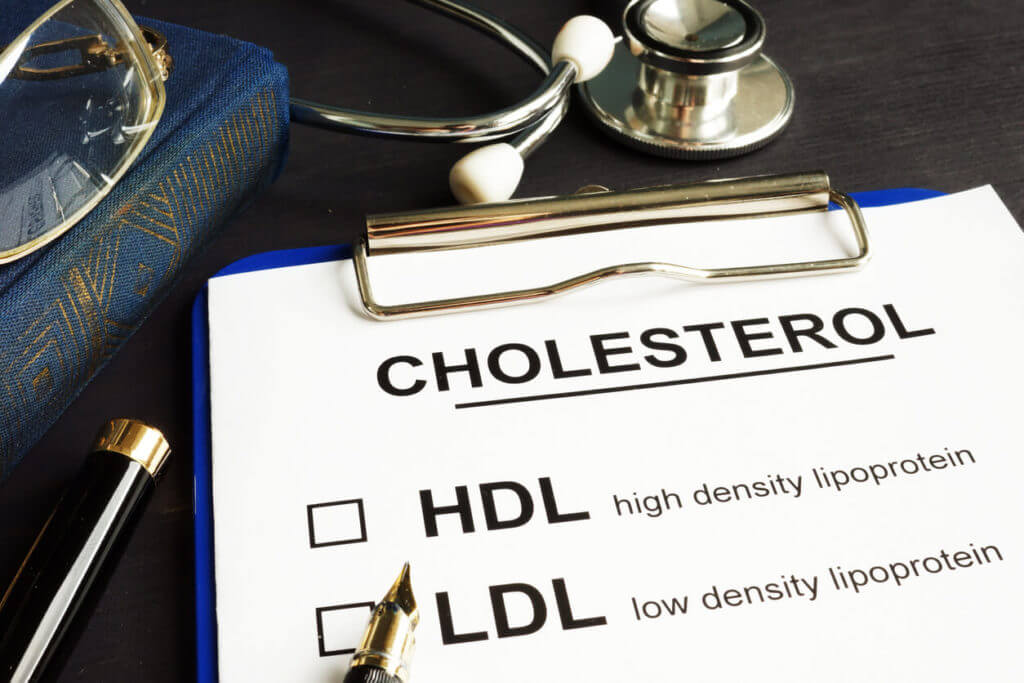
Have you ever felt confused by the terms “HDL,” “LDL,” and “triglycerides” during a doctor’s visit or puzzled over your blood test results? If so, you are not alone. Cholesterol is a critical substance in our bodies, playing key roles in building cells and producing hormones. However, maintaining the right balance is crucial for our health.
Whether you are looking to improve your heart health, make informed dietary choices, or are curious about what those cholesterol numbers mean, this article is for you.
The Importance of Knowing Your Cholesterol Numbers
Awareness of cholesterol levels is crucial for maintaining heart health and reducing the risk of heart disease.
By understanding your numbers, you can take proactive steps to manage your cholesterol, ensuring a healthier, more balanced lifestyle.
What are Cholesterol Numbers?
Cholesterol is measured through a simple blood test, revealing three key numbers:
- High-Density Lipoprotein (HDL)
- Low-Density Lipoprotein (LDL)
- Triglycerides
HDL is known as “good” cholesterol, helping remove other cholesterol forms from your bloodstream.
Conversely, LDL is often dubbed “bad” cholesterol, as high levels can lead to plaque buildup in your arteries.
Triglycerides are fat in the blood, and high levels also contribute to heart disease.
How to Interpret Your Cholesterol Numbers
Interpreting your cholesterol numbers might seem daunting, but it is simpler than you think. When you get a cholesterol test, you will see three main figures: HDL, LDL, and triglycerides.
Here is a quick rundown:
HDL (Good Cholesterol)
Think of HDL as the helpful cholesterol that carries other cholesterol types back to the liver, where they are broken down.
A higher HDL number is what you are aiming for, as it is linked to a lower risk of heart disease.
LDL (Bad Cholesterol)
LDL is the one to watch out for. It can build up in the walls of your arteries, making them hard and narrow. Lower LDL numbers are better to reduce your risk of heart attacks and strokes.
Triglycerides
These are the most common types of fat in your body, and they come from calories your body does not need right away.
High levels of triglycerides can increase your risk of heart disease, especially when combined with low HDL or high LDL levels.
Understanding these numbers is the first step in taking control of your health.
If your LDL or HDL is high, it might be time to discuss strategies with your healthcare provider to improve your cholesterol profile.
The Impact of High Cholesterol: Health Risks
High cholesterol might be a silent issue, often showing no obvious symptoms, but its effects on the body can be significant and far-reaching.
When cholesterol levels are imbalanced, specifically when the levels of LDL (commonly known as bad cholesterol) are elevated, fatty deposits can form within your blood vessels. As time passes, these deposits gradually enlarge, causing impediments to the smooth flow of blood through your arteries.
This reduced blood flow can lead to complications such as chest pain or angina when insufficient blood reaches the heart.
More seriously, if these deposits break suddenly, they can form a clot that causes a heart attack or stroke. Apart from these direct impacts, high cholesterol also:
- Increases the risk of developing peripheral artery disease
- Can contribute to heart failure over time
This is due to the increased workload on the heart to pump blood through narrowed arteries.
Understanding these risks makes it clear why managing cholesterol levels is essential for long-term health and well-being.
When to See a Doctor: Warning Signs
Consulting the best lipid specialist near you about your cholesterol levels is a key part of maintaining heart health.
Here are some instances to help you decide when it might be time to see a healthcare provider:
- Routine Checkups: Adults should get their cholesterol checked every 4 to 6 years. Your doctor may suggest more frequent screenings if you are at higher risk.
- Family History: If heart disease runs in your family, it is important to monitor your cholesterol levels closely.
- Lifestyle Factors: Overweight individuals, smokers, those with diabetes, or people who lead a sedentary lifestyle might need to see a doctor more often.
- Symptoms of Heart Problems: Be alert to chest pain, shortness of breath, or excessive fatigue, and consult a doctor if you experience these symptoms.
- Lack of Improvement: If lifestyle changes or medications do not seem to lower your cholesterol, it is time to discuss further options with your doctor.
- Worsening Conditions: If your cholesterol levels worsen despite treatment, a visit to the doctor is necessary.
Early detection and management can significantly lower the risk of heart disease and other complications related to high cholesterol.
The Best Lipid Specialist Near Me in Tucson, AZ
If you need concierge medicine near you, you can trust the office of Robert E. Lending, MD. As an Internal Medicine doctor and Clinical Lipidologist, Board-Certified Dr. Robert E. Lending screens for, treats, and helps patients manage and prevent a wide variety of healthcare issues and medical conditions that can occur during a person’s lifetime.
To learn how we can help you, call our helpful staff today at (520) 795-4291. You may also use our hotline if you wish to book a visit with our concierge doctor.
We look forward to serving you!



